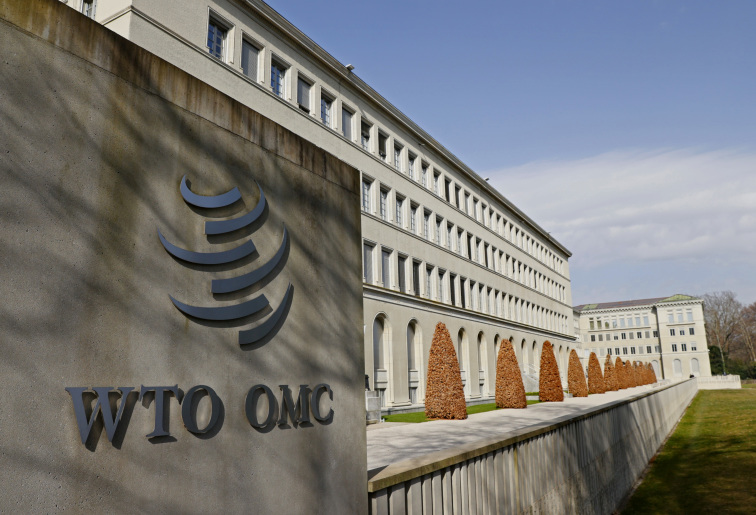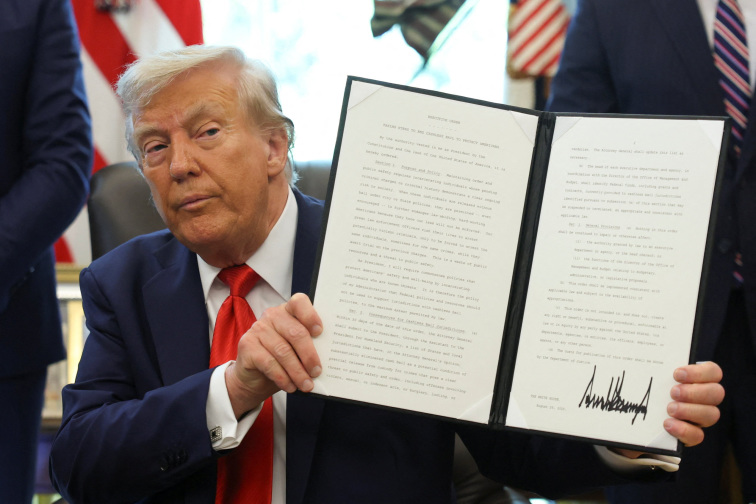The CCP military is riddled with corruption, severely weakening its combat effectiveness. (Graphic by People News)
[People News] The “9/3 Military Parade” has just concluded. While many observers viewed the parade not only as Beijing’s attempt to “show muscle” internationally but also as a direct warning to Taiwan, a Washington think tank — the Stimson Centre — dropped a bombshell on September 3. It stated plainly: a CCP military attack on Taiwan is “extremely unlikely,” and the probability of success is actually decreasing over time. This bombshell announcement meant that the 36 billion yuan spent on the Beijing parade was all for nothing.
Armed Unification with Taiwan: An Impossible Mission
According to Taiwan’s Liberty Times, the Stimson Centre’s report, Rethinking Threats: Why China Is Unlikely to Invade Taiwan, points out that whether viewed from strategic, political, economic, or practical military dimensions, the chance of a near-term CCP military attack is very low. While “unification” has long been the core theme of Beijing’s Taiwan policy — with the U.S. continuing military aid to Taipei — any assault would not only fail to deliver a quick victory but, with advancing technology and growing international resistance, the costs and risks of aggression would only keep rising. Researcher Glaser stressed: “The status quo has lasted 76 years; the probability of success is not rising but declining.”
The report further notes that if the PLA were to land on Taiwan’s main island, it would face two major dilemmas: a direct landing in cities would trigger urban warfare; if it chose to land in rural areas, it would be forced to deploy equipment in exposed rice fields, which would be highly disadvantageous. Moreover, Taiwan’s central mountain range covers 60% of the island’s surface, forming a formidable obstacle to any ground offensive. Most importantly, both the U.S. and China possess nuclear weapons, making the risk of nuclear conflict the strongest deterrent. In addition, the conflict would cause massive casualties. Combined with China’s demographic changes and population decline, the CCP regime would face immense political risks, and global supply chains and shipping routes would be thrown into chaos.
However, the report suggests that Beijing is more likely to adopt coercive diplomacy tactics, such as naval blockades or cyberattacks, in an attempt to force Taipei into political concessions.
Annexing Taiwan as a Launchpad for Global Expansion
It is well known that Xi Jinping is the CCP leader most obsessed with “unifying” Taiwan, repeatedly declaring he will never renounce the use of force. Since taking office, Xi has stressed in public that resolving the Taiwan issue and achieving full national unification is an “unwavering historic mission,” claiming that “the motherland must be unified and will inevitably be unified.”
Media sources have revealed that the PLA Rocket Force was personally established and developed by Xi, specifically as a military branch to prepare for armed unification with Taiwan. In October 2024, while inspecting the Rocket Force, Xi demanded that its troops enhance strategic deterrence and combat readiness.
Chinese jurist Yuan Hongbing, now living in Australia, once drank Maotai liquor with Xi Jinping during their younger days in Beijing. In July, Yuan told Epoch Times: “The CCP sees annexing Taiwan as the breakthrough point for global expansion of communist totalitarianism. In 2018, Xi Jinping wrote his ambition to seize Taiwan into the constitution by amending it, and the CCP charter was also revised to include it. This clearly told the world: annexing Taiwan is the CCP’s fundamental strategic assumption. Xi seeks to revive international communism, and the basic assumption of this strategy is to replace the U.S. with CCP tyranny as the legislator of international law and the setter of global order. His starting point for achieving this goal is launching a war in the Taiwan Strait.”
Opposing Armed Unification Seen as Political Disloyalty
Foreign media reported that China’s 2025 defence budget is about 1.7847 trillion yuan, a 7.2% increase over the previous year, matching last year’s pace. Since 2022, China’s defence budget growth has exceeded 7% annually for four consecutive years. In addition to the official figures, outside observers suspect that Beijing hides significant “off-the-books” spending. Taiwan’s Ministry of National Defence, in its 2019 Defence Report, noted that China has long concealed specific budget items, often burying military expenses within State Council departments. Foreign think tanks estimate that real military spending may be more than double the public number, possibly reaching 3.5 trillion yuan.
Although Beijing is willing to pour huge sums into military spending, since the CCP’s 20th Congress in 2022, Xi Jinping’s third term, has launched a massive purge of military generals. At least 21 generals have been removed, including three of the seven Central Military Commission members. Even the senior officer who controlled general appointments for nearly a decade was ousted, throwing the top ranks into turmoil. Former Defence Minister Wei Fenghe — the first to receive the rank of general personally conferred by Xi, and also Xi’s first Rocket Force commander — had once supported Xi in key factional struggles and was richly rewarded. Yet in the end, it was Xi himself who destroyed Wei, with the Rocket Force leadership nearly “wiped out.”
Such sweeping purges have fueled speculation. Some interpret it as Xi losing control over the military, even though his political position is in jeopardy. Others argue that Xi is purging generals opposed to armed unification with Taiwan, willing to strike even his own handpicked loyalists.
Yao Cheng, a former lieutenant colonel in the PLA Navy headquarters, said on NTD’s Elite Forum in 2023 that most of the Rocket Force generals purged “harboured disloyalty or political problems toward Xi.” Yao noted that the Rocket Force has the most severe aversion to war, more so than the army, navy, or air force, because its officers know that in a Taiwan conflict, the U.S. would first target and cripple the Rocket Force with surgical strikes, leaving them little chance of survival. Thus, they are unwilling to fight, yet under Xi’s pressure, “the Rocket Force lives in fear, with morale collapsing.”
CCP Faces an Unprecedented Political Crisis
At the end of July, Yuan Hongbing stated on Elite Forum that Xi’s sweeping purge of the military, beginning with the Rocket Force and spreading to the defence industry, the General Armaments Department, the Air Force, and even the Strategic Support Force, was unprecedented since Xi took power. More importantly, those purged were not Xi’s rivals in factional struggles, but his own “Xi family army,” vetted just after the 20th Congress. Why would Xi “cut his own flesh” and “tear down his own Great Wall”? Some say it was due to leaks of military or state secrets, but Yuan dismissed this as nonsense. Others point to corruption, but corruption is universal among CCP officials — “there are no honest officials.”
Yuan explained that Xi was forced to purge his own loyalists because his intelligence services reported that the “Xi family army” was not only less than absolutely loyal to him, but absolutely disloyal. Those purged, including Qin Gang, Li Shangfu, and the Rocket Force leadership, privately mocked or harshly criticised Xi’s policies — from launching war over Taiwan to his governance style over the past decade. They sympathised with Liu Yazhou’s approach to handling the Taiwan issue and nostalgically recalled Deng Xiaoping’s era in economic and foreign policy. Xi suddenly realised he was surrounded by two-faced men wearing masks. In other words, Xi found himself in an unprecedented political crisis: he demanded “absolute loyalty,” but discovered such loyalty did not exist. This realisation marked his gravest political danger.
Yuan concluded: “My basic judgment is that CCP tyranny is already in its death throes. No matter how Xi Jinping struggles, he cannot alter the overall trajectory — that the Communist Party is heading for extinction.” △











News magazine bootstrap themes!
I like this themes, fast loading and look profesional
Thank you Carlos!
You're welcome!
Please support me with give positive rating!
Yes Sure!